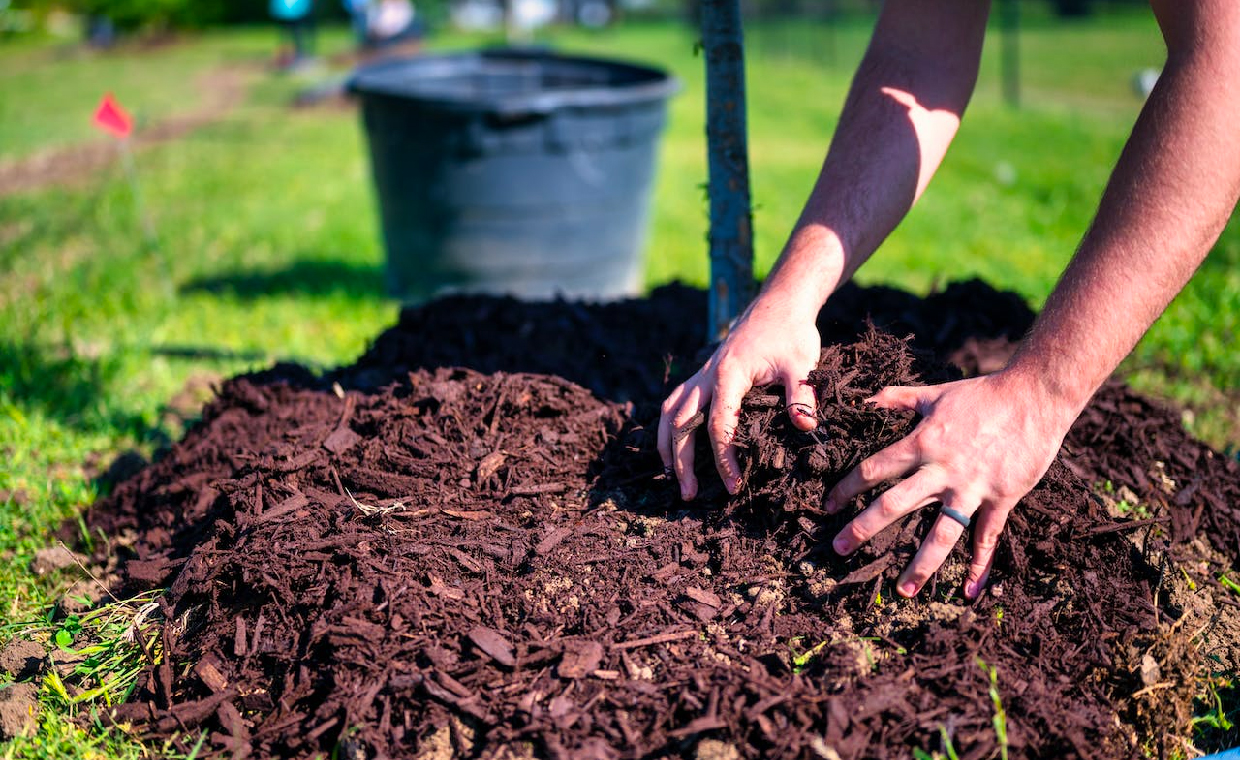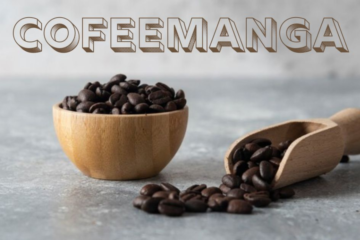Mulching is one of the most important things you can do to improve the health and look of your yard. This easy method involves putting something on top of the dirt to protect it and make it better. You and your plants will both benefit from mulching, which does many things, such as keeping the soil wet and stopping weeds from growing.
It doesn’t matter how experienced you are as a farmer or how new you are; knowing how to mulch your garden correctly can make all the difference. Thus, this article will define mulching, its types, how to utilize it, and its many benefits for your garden.
What Is Mulching?
Putting organic or inorganic objects on top of the soil around plants is called mulching. This layer protects your garden by keeping water in, keeping weeds down, keeping the soil at a comfortable temperature, and making it look nicer. Over time, mulch can also break down and return important nutrients to the soil.
What kind of mulch you use depends on the needs of your yard, the weather, and the plants you are growing. But using the right mulch for the job will make a difference in the health of your plants and the quality of your soil.
Types of Mulches
There are two main types of mulch: organic and artificial. Depending on your garden goals, each type has its benefits.
1. Organic Mulches
Natural materials are used to make organic mulches, which break down over time and add organic matter to the soil. The following are some of the most popular types of organic mulch:
- Wood Chips and Bark: These are great for long-term protection and give flower beds a rustic look. They break down slowly and are great for planting around trees, shrubs, and flower beds.
- Compost: Well-rotted soil can be used as a mulch that is full of nutrients. It makes the structure of the soil better, attracts earthworms, and adds nutrition to the soil slowly.
- Grass Clippings: Grass leaves can be used as mulch for free. They break down quickly and add nitrogen to the soil, but they should be spread out in thin layers to keep them from matting and dying.
- Straw and Hay: If you want to grow vegetables, straw is great because it keeps the soil fresh and stable. But make sure the straw doesn’t have any weed seeds on it so you don’t bring in plants you don’t want.
- Leaves: Shredded leaves are a simple, cheap, and quick way to cover plants. They decompose rapidly and enrich the soil with nutrients.
2. Inorganic Mulches
Inorganic mulches are made from things that don’t break down naturally. These mulches don’t break down, so they don’t make the earth more fertile. However, they are good for landscaping and keeping weeds down. Some examples are:
- Gravel or Stones: These last a long time and are great for paths, roads, and other places that don’t need to be planted often. But they can raise the temperature of the earth and may need a weed barrier under them to stop weeds from growing.
- Plastic Mulch: Plastic mulch is often used in industrial farming because it keeps water in the soil, stops weeds from growing, and warms the soil so plants can grow faster. But water can’t get through, so it needs to be taken off and changed every so often.
- Landscape Fabric: Landscape cloth keeps weeds down in the same way that plastic mulch does, while still letting water and nutrients reach the soil. It’s often put down under stones, wood chips, or other mulches.
Benefits of Mulching
Mulching has many benefits that make plants healthier, the soil better, and the yard looks better. Here’s how mulching can change your garden for the better:
1. Moisture Retention
One of the best things about mulching is that it keeps the dirt moist. The mulch forms a barrier that stops water from evaporating, which helps the soil stay wet for longer. This is especially helpful when it’s hot outside or in places that often get droughts. For gardeners, this means plants will need less watering and be healthy.
2. Weed Suppression
Mulching naturally keeps weeds down. Mulch covers the ground and keeps weed seeds from getting sunshine, which stops them from sprouting and growing. This cuts down on the need for chemical herbicides and the time you need to spend pulling weeds, so you can focus on other gardening chores.
3. Soil Temperature Regulation
By keeping the ground warm, mulch helps keep the soil at the right temperature. It keeps the soil cool in hot weather, which stops plant roots from getting too hot. If it gets cold, grass covers the soil like a blanket, keeping it warmer and stopping frost damage. This change in warmth helps plants grow more steadily all year long.
4. Nutrient Enrichment
Organic mulches add important organic matter to the soil as they break down. This makes the earth stronger, better able to hold water, and full of nutrients that plants need to grow healthily. Mulch is like a slow-release fertilizer that helps the ecosystem of your yard over time.
5. Erosion Prevention
By keeping wind and water from running off the soil’s surface, mulching helps keep the soil from washing away. The mulch layer holds the dirt in place, so valuable topsoil doesn’t wash away and plant roots stay safe. This is very important on hills or in places where it rains a lot.
6. Improved Soil Structure
Adding organic mulch to the soil makes it better in terms of its structure and appearance. In the long run, it helps a healthy environment grow in the soil by attracting good microorganisms, earthworms, and fungi. These living things help break down organic waste, open up the soil, and make it easier for plants to get nutrients.
7. Pest Control
Different kinds of mulch, like cedar or pine, naturally keep bugs away. Adding mulch can also keep pests away by making the environment less conducive to their survival. Fruits and veggies that are grown in mulch stay off the ground, which keeps them from getting rot and disease from touching wet soil.
The Impact of Mulching on Your Garden
Adding mulch to your garden is a strong and easy way to make it look better, grow more plants, and be more productive. Because of these benefits, mulching is a must for any gardener who wants to make a healthy, low-maintenance yard. The effects will be the same whether you use organic or inorganic mulch: a healthier, stronger garden that grows beautifully all year.
Keep an eye for more latest news & updates on Web of Buzz!




